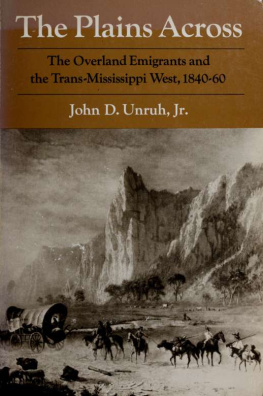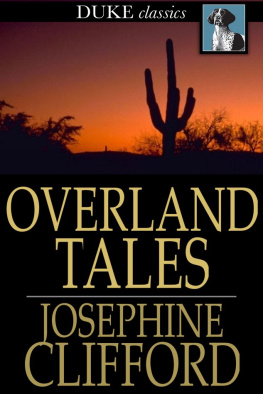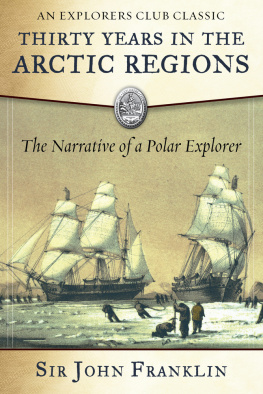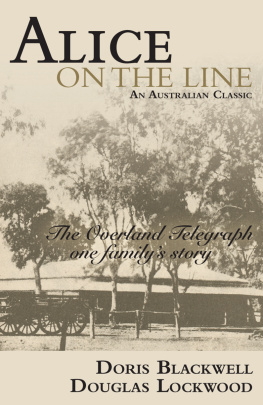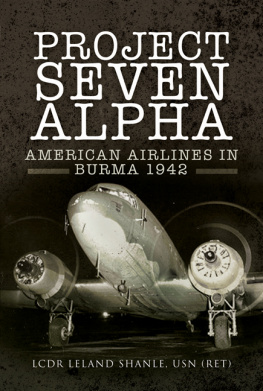Title Page
FIRST OVERLAND
London to Singapore By Land Rover
by
Tim Slessor
Photographs by
Antony Barrington Brown
Publisher Information
Signal print edition first published in 2005 by
Signal Books Limited
36 Minster Road
Oxford OX4 1LY
www.signalbooks.co.uk
This digital edition published in 2012 by
Andrews UK Limited
www.andrewsuk.com
First published in 1957 by George G. Harrap & Co. Ltd.
Tim Slessor, 1957, 2005
All rights reserved. The whole of this work, including all text and illustrations, is protected by copyright. No parts of this work may be loaded, stored, manipulated, reproduced or transmitted in any form or by any means, electronic or mechanical, including photocopying and recording, or by any information, storage and retrieval system without prior written permission from the publisher, on behalf of the copyright owner.
Cover Design: Baseline Arts
Cover Images: Antony Barrington Brown
Foreword
by Sir David Attenborough.
Today they are all into their seventies - grey-haired and grandfathers every one. But when I first met them they were mere undergraduates barely into their twenties. (Come to think of it, I was not that much older myself. ) They wanted to know if, as the producer in charge of the BBCs Exploration Unit, I could be persuaded to back them in a seemingly madcap adventure. They suggested - with, I may say, no doubts or hesitations - that they could make some really good programmes if only I would go along with their idea. So I took a risk - in those early TV days one sometimes did. They got 200 (with which to buy a clockwork camera) and enough film to start them down the road. I promised that there would be more film if, when they sent back the first batch, I liked what I saw. Well, I did. And a year later, when they got home, the end-result was just as they had predicted: three really good programmes for a series called TravellersTales . And a book.
This is that book, reprinted after half a century. Over the years it has become something of an overlanders bible. Indeed, one might reasonably claim that both the journey and its telling are now regarded as classics of their kind. Someone once put it rather well when they said that the only good reason for not buying a copy for your sons or husbands birthday is that he will almost certainly then want a Land Rover for Christmas. An early critic (in Motor magazine) put it even more simply:I think this is the best travel book I have ever read.
In many ways the world has shrunk since the mid-1950s, but that is primarily in terms of the many advances in air travel. The fact is that their own landward journey would be quite impossible today. Indeed, it has not been possible since about 1958 - when it was reported that the Ledo/Stilwell Road had finally been washed away and gone back to the jungle. In any case, even if that road had survived, for the last three decades (or more) the totalitarian regime of Burma/Myanmar would never have granted visas for a land entry across the countrys far northern frontier. The Indians too have long barred travellers from their side of the Assam/Myanmar border area. Further east, it would almost certainly be impossible to get permission to leave Burma across the Salween and over the Shan hills to Thailand; the Burmese army has been fighting the Shan independence movement for the last thirty years.
Elsewhere there are other problems. One thinks of the Middle East - Iraq, Iran, Baluchistan, Afghanistan Members of the expedition are the first to point to their luck in having attempted their journey during a very short window of opportunity. They also say that they were lucky in terms of the weather - they arrived at the most problematic part of their route (the many-rivered eastern side of the Naga Ranges running down to the Chindwin and, eventually, to the Irrawaddy) in what was a particularly dry year.
The only part of their route which would now be easier is the leg from southern Thailand into northern Malaya. In 1956 there was a gap of more than 100 miles. There was no road, only a railway line. They planned to bump down the sleepers. But then they heard that only a few weeks earlier some bulldozers had made a surveyors trace through the jungle - preparatory to the building of a proper road. In one very long day they were able to follow that trace. The road itself was built three years later.
So what, I think I hear you ask, have the six young men who made that long journey been doing for the last fifty years? I too was curious to find out. So I asked them
Not too surprisingly, two of the six, Adrian Cowell and Tim Slessor, quickly found a home in documentary television. Adrian became, first, a director on an early ITN current affairs series called Roving Report ; it took him from Tibet to Timbuktu, from New Guinea to the Andes. Later, he followed the freelance trail - with a particular penchant for films about the opium smugglers of the Burmese hill-country, and, on the other side of the world, about the remote tribes of the Amazon (which is where he is once again, even as I write). Many of his films - some of which have taken him two careful years to make - have been seen worldwide, and have won some of the highest awards in the business. Always a wanderer to the remotest corners, he still seems to have no fixed abode - just an e-mail address. Even then, as he says (if one can find him), Im not often within range of a cyber caf.
Tim Slessor joined the BBC before he had even finished writing the expeditions book. He too became a traveller - making documentaries from the Outback to the Arctic. Over the years he developed a particular interest in the United States. Indeed, at one time he upped sticks (with his wife and children) and went to work for a year in Wyoming - which, perhaps, is why he takes particular pride in an award from the Cowboy Hall of Fame for two films about The West made for Alistair Cookes America series. Later, he became a London-based series editor. That was mainly sending other people out to have the fun - interesting. But I much preferred to be out there myself. So, in the end, he too went freelance - more travelling. More recently, and now retired, he enjoys sailing his boat, from the Hebrides to Biscay. And he has just written another book: an investigation of the dissembling and half-truths coming out of Whitehall.
Antony Barrington Brown, (always known as BB) was the cameraman - for both film and stills. On getting home from the expedition, he ran his own photographic business in Cambridge until, he says,a road-widening scheme saw my studio flattened. So, ever adaptable, he turned a hobby into a profession; he became an inventor. His designs ranged from a novel and very economic way of house building (get the roof up first) to a quick way of erecting exhibition and industrial shelving. The latter is now in use all over the world, and had BB invented it on his own account rather than for his employer he would be a very rich man. As it is he had to be satisfied with a gold medal: Nice, but it didnt pay the rent. So he went off to his beloved Wiltshire to start his own company - solving problems, building more inventive houses, and making industrial furniture. Lately, now semi-retired, he works with and for his wife, an acclaimed sculptor. Last year, he was awarded the MBE for myriad services to his local community. And he has recently been elected a Fellow of the Royal Photographic Society - a life-long ambition.
Nigel Newbery was the youngest of the crew and the only one from Oxford. Indeed, unlike the others who were all fully-fledged graduates by the time the expedition set out, Nigel still had another year of studies to go. So, inevitably, (as this book explains) he took some stick from his Cambridge superiors; indeed, it is said that they sometimes introduced him as Our young undergraduate friend from Oxford. But he took it in good part and, anyway, as the others now acknowledge, Nigel, even then the embryo wheeler-dealer, is probably worth as much as the rest of us put together. He first went into advertising, but became disenchanted working out which balloon should go into which cereal packet. So, with a partner, he set up a company with (he decided) a novel twist to boil-in- a-bag catering. All went well until a much bigger company saw profit in the self-same novel twist. So Nigel took off to build an abattoir in Bechuanaland. When he came home, he started in venture capital - which, as he says, is mostly about risking other peoples money. But then, as he goes on, it seemed simpler to get involved in actually managing some of the ventures himself. One thing led to another and, in time, he became the CEO or chairman of slew of successful companies, a director of others, and what he calls a consultant-handyman to yet others. Now semi-retired in Cumbria, he can return to an earlier passion, the piano. And, between times, he goes trekking in the Himalayas with his wife.
Next page

